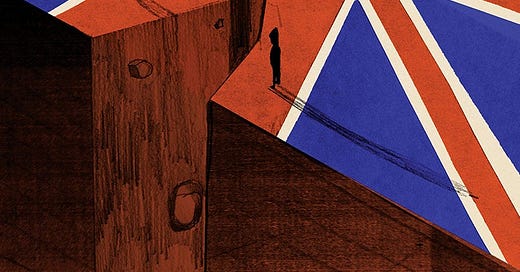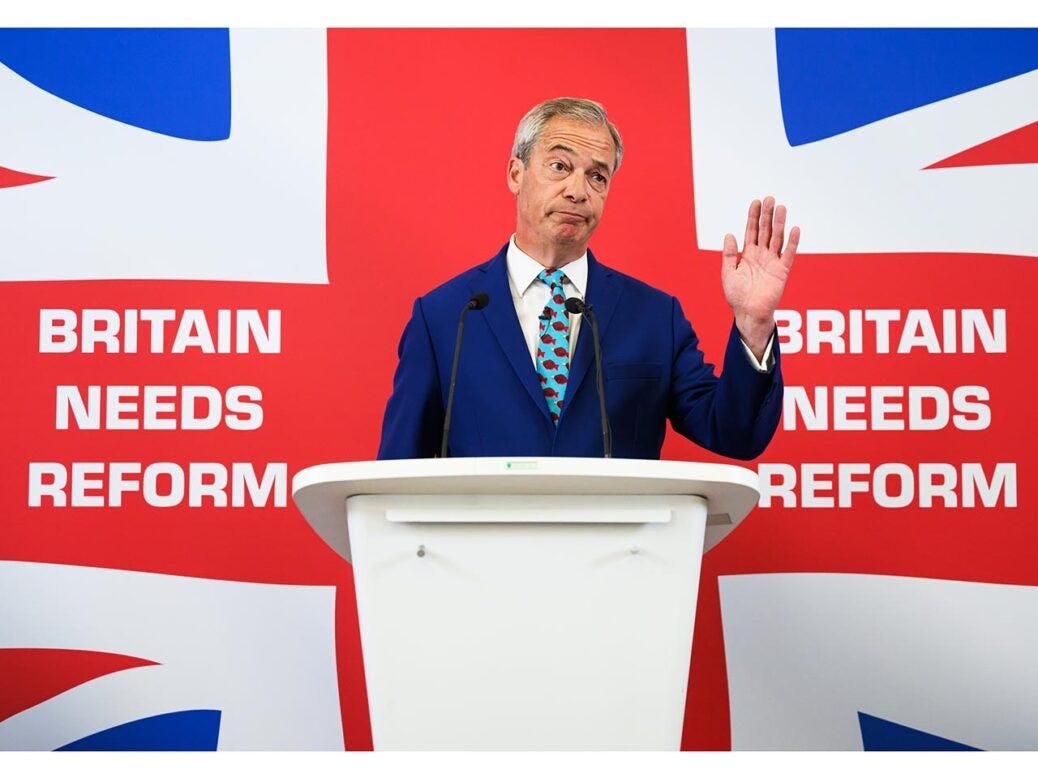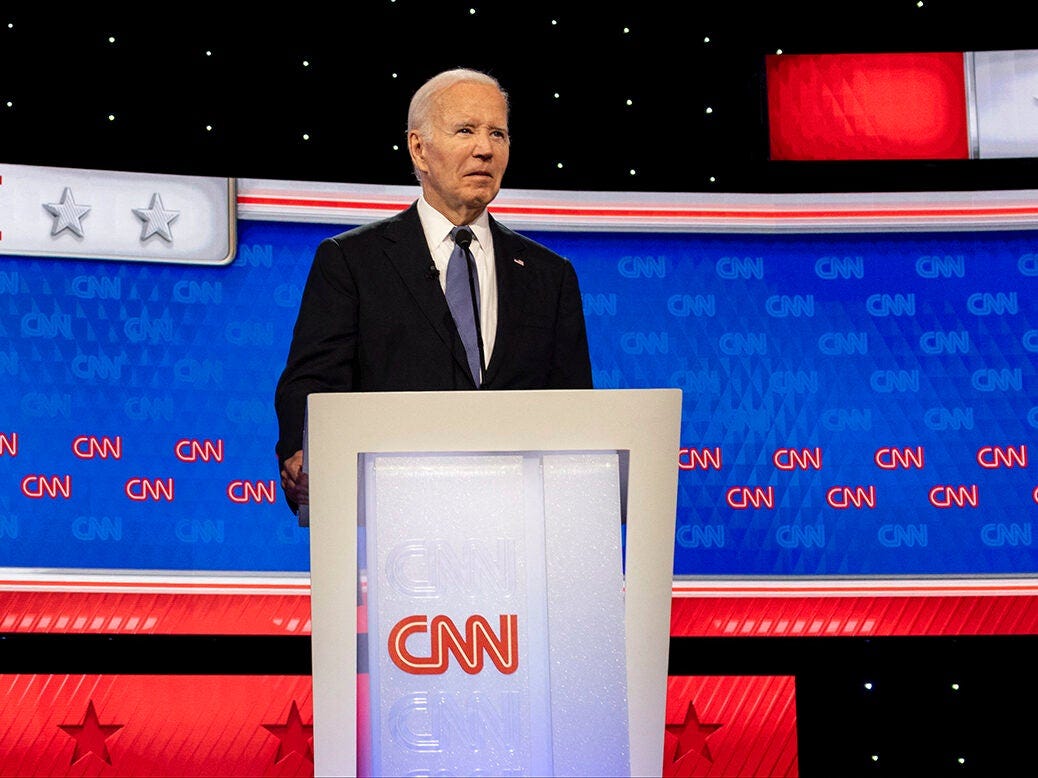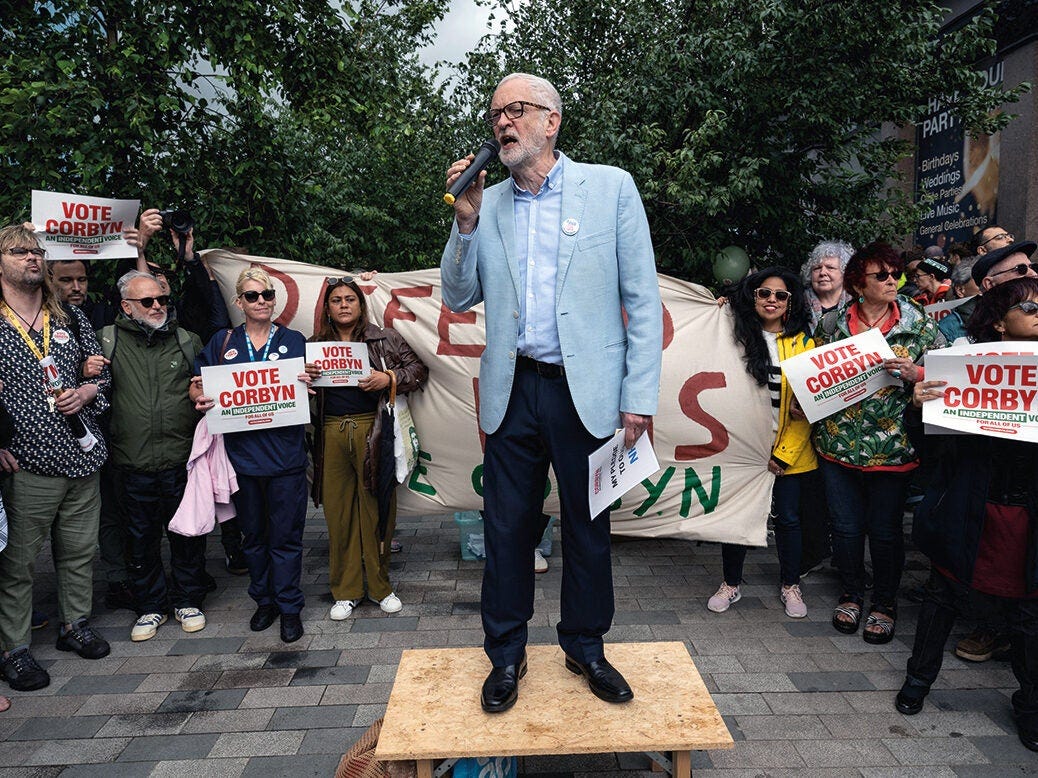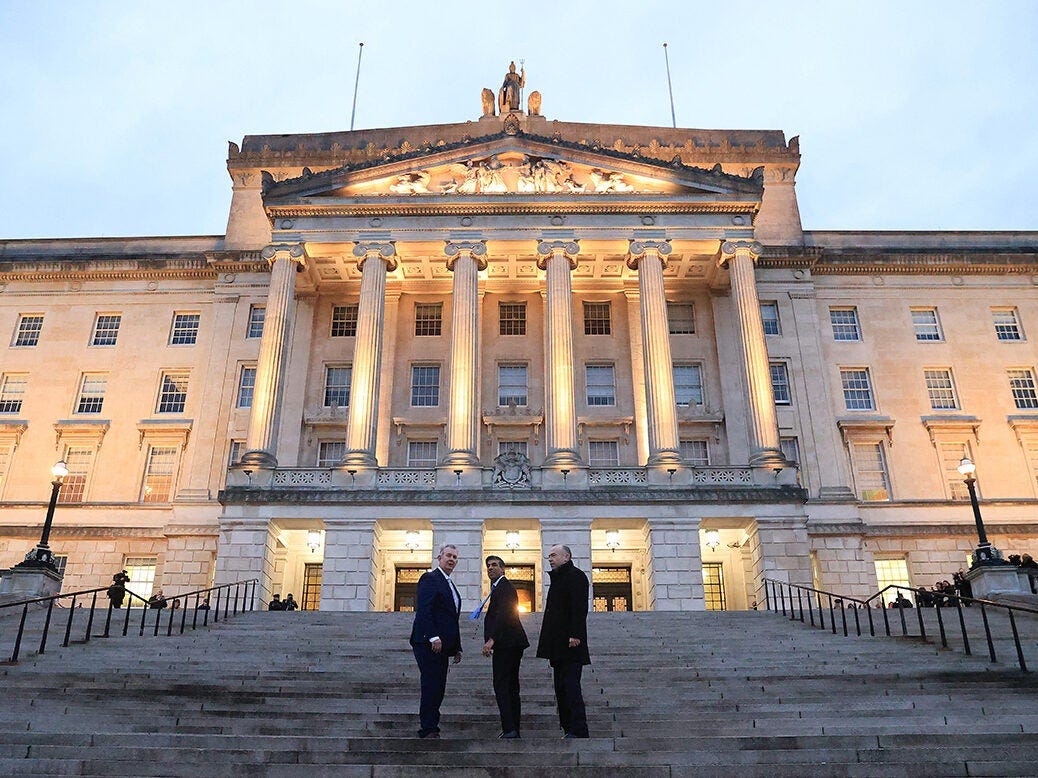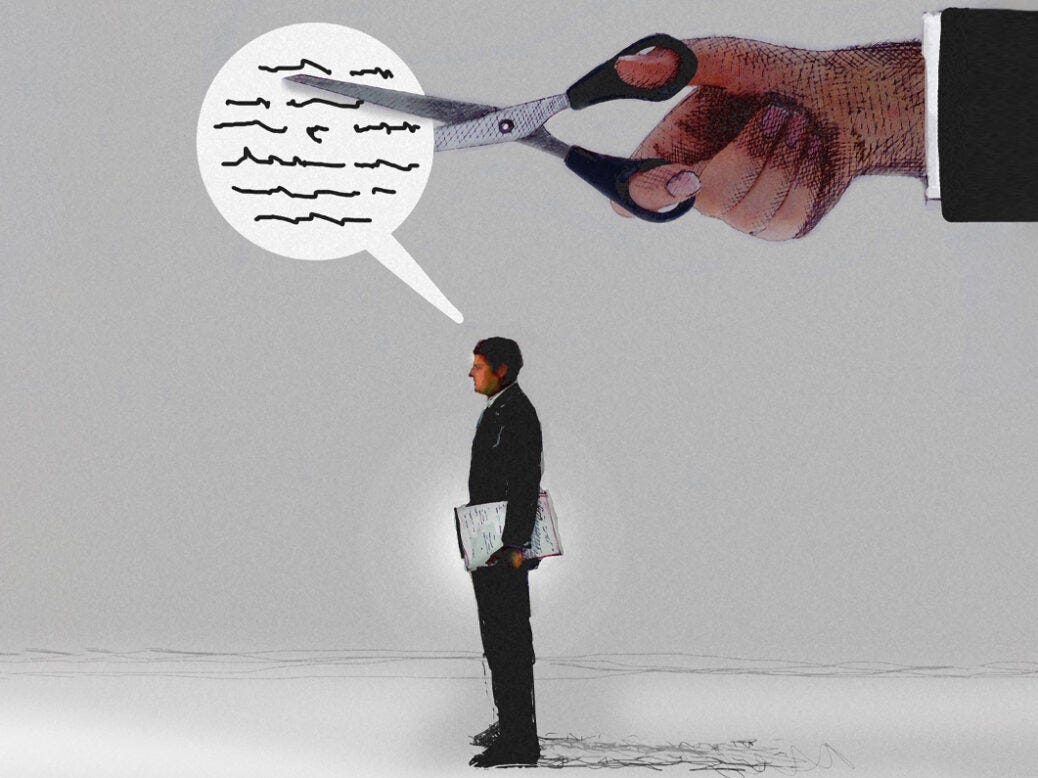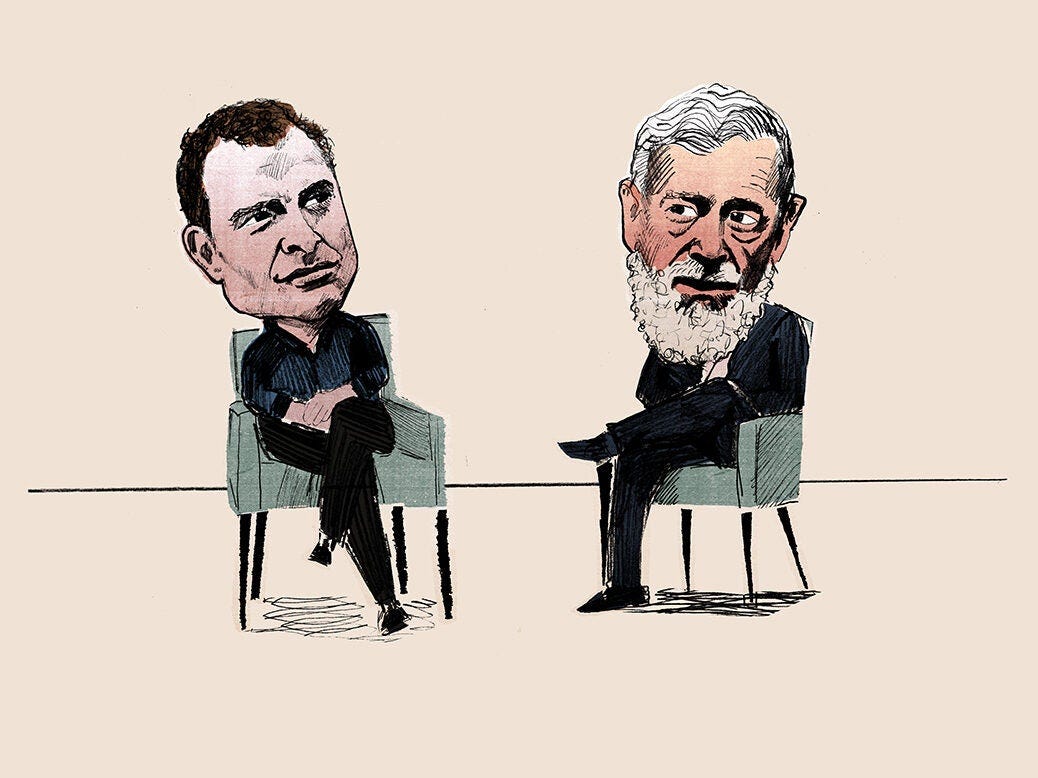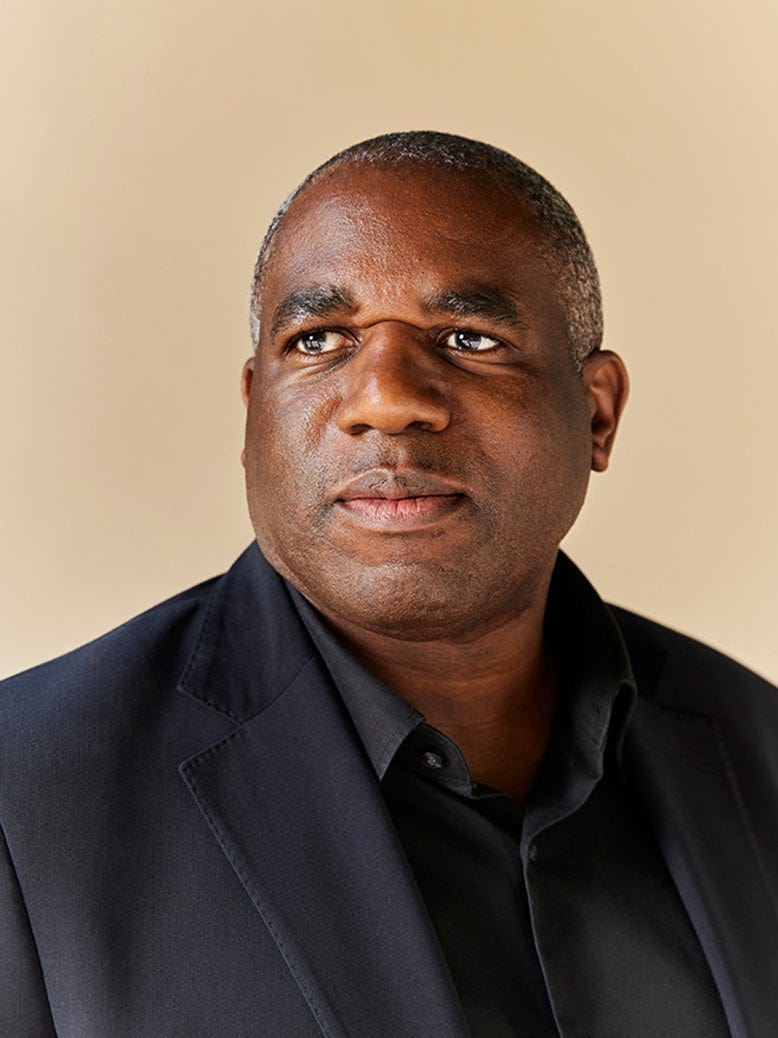The Saturday Read: Shepherd’s warning
Inside: Andrew Marr, David Lammy, Joe Biden, wild swimming and Euros dread.
Good morning. Welcome to the Saturday Read, the New Statesman’s guide to politics, culture, books, and ideas. This is Jason, together with Finn, Nicholas, Pippa and George.
The Euros continue (England, so grinding and passive, play tomorrow afternoon in Gelsenkirchen) and Wimbledon begins on Monday (watch out for the new British men’s number one, Jack Draper, 22, and his formidable lefty serve). But today’s Saturday Read is a British general election special, and so there will be “a little bit of politics, a little bit of politics”, as Ben Elton used to say, in our choices.
In recent days I’ve been talking to and writing about David Lammy, the next foreign secretary (a Trump presidency could seriously destabilise Labour), and Nigel Farage, the radical right populist leader of the non-party party Reform, which surged in the polls early in the campaign but has fallen back in recent days as it becomes mired in controversies over racist activists and the war in Ukraine. Meanwhile, Andrew leads off with his reflections on the wider election campaign so far.
Nearly over. A punch-drunk, occasionally just drunk, air of exhaustion hangs over the People’s Party. Unless the entire polling industry is headed for closure and liquidation, it seems that the election result will be far more consequential than the campaign has been.
There are still big unknowns. One poll put Reform on 18 seats – we just don’t know how significant they could be in the next few years. Has the Ukraine issue caused Nigel Farage trouble with disillusioned Tories? As Rishi Sunak rams home his message on tax cuts and borders, might we see a last-minute uptick in Tory fortunes, sufficient to turn catastrophe into mere defeat?
But looking ahead, the biggest questions are for Labour. The job of rebuilding Britain – physically, socially and morally – is a giant one. Might they look back on the six weeks of the summer campaign as a terrible wasted opportunity?
This was when they might have done the rhetorical groundwork for the change that must now come. Really, from Keir Starmer’s point of view, we should have been talking about the NHS, housing, local authorities, crumbling prisons… Instead, despite the increasingly alarmed interventions by the Institute for Fiscal Studies, and in part because Labour chose to tilt so much to the right-wing media, the conversation has been all about immigration and tax cuts.
These were weeks to ensure voters turned out to punish the Tory party; and this seems to be happening. But they were also weeks to change the national conversation; and candidly we haven’t had enough of that.
It’s a bit like standing with your builder outside a ruined home. You both know what needs to be done. He’s assured you he can do it cheaply and without as many bricks or cement as you thought were needed. And now you are both staring at one another with a quizzical, slightly suspicious, expression.
The picks…
Good morning, Finn here. Here’s a selection of some of our favourite stuff from a rather politics-heavy week: from David Lammy’s guiding philosophy to Joe Biden’s er, lacklustre performance in the first US presidential debate. Signing off, Nicholas reveals his pathological relationship with the English football team.
1—“A small-scale Taylor Swift concert for pensioners”
In a general election campaign that has yielded little fun and no grand political narratives or lessons, the most diverting spectacle has been the Reform campaign, and more specifically the political theatre of Nigel Farage and the controversy surrounding racist comments made by a party activist in Clacton. To get a measure of this phenomenon, we dispatched Freddie Hayward to a Reform rally in Sunderland, from which he produced a weekend report which is equal parts thoughtful and colourful. NH
Farage is a seismometer for what will dominate politics five, ten years down the line. This is why Labour should be worried. The young don’t turn out. But the young become old. A Labour government would make the right an anti-establishment force… If Reform can assemble the activists, councillors, local branches and online army of a modern political party, then a Labour government might find it spends more time fighting Reform than the Tories.
2—“The real loser of last night’s debate was America.”
We were thrilled to welcome our China and global affairs editor Katie Stallard back from maternity leave this week – a well-timed return for Thursday’s presidential debate. Biden’s frail, halting performance showed him for what he is: too old for the task ahead. But Trump, who lied his way through the tawdry spectacle, is hardly fit to be president either. Plus, for this week’s magazine Katie reports on Kim Jong Un and Vladimir Putin’s new security pact. The piece also features an armoured limousine and a pair of Pungsan hunting dogs… PB
At one point, during an answer on immigration, Biden trailed off, appearing to lose his train of thought and concluding, “we finally beat Medicare”. (Medicare is the health insurance programme for Americans over-65.) “I really don’t know what he said at the end of that sentence, and I don’t think he knows either,” responded Trump calmly. It was the moment that will stick with many viewers, and it will haunt Biden if he continues with this campaign, which must now be in serious doubt.
3—“I got basically a one-line email saying I’ve been expelled.”
Oliver Eagleton takes us inside Jeremy Corbyn’s extraordinary life in Islington North. Corbyn’s status – rooted in his constituency for more than 40 years, but also a major national figure – is singular. And he’s still better known than Starmer. GM
It takes time to walk anywhere with Jeremy Corbyn. As we set off, he was stopped immediately outside Finsbury Park Mosque by a group of men who shook his hand and asked for selfies. He knocked on a door off Seven Sisters Road and disappeared inside for several minutes before emerging to take a photo with the family in the front garden. Their neighbour beckoned him over with a question about the NHS. Back on the street, some passers-by solicited his predictions about the Premier League. More selfies. A large group of 20-somethings outside a pub across the road raised their pints to him. He shouted back, “Register to vote!” After ten paces he stopped again to chat to a council worker clearing rubbish from the gutters.
4—“Waterlog offers something like a sensual education.”
I’ve gushed on Roger Deakin for a thousand words or so. The man is a legend, and not just as a populariser of wild swimming or celebrant of British life. The consolations he offers – indirect emotional congress and sensual re-education – are hard to find. GM
The second-longest chain of successful successive recommendations I’ve known one book to make is two: the longest is seven. That was Roger Deakin’s Waterlog – the blue paperback came from my uncle to me, then went to my friend, his dad, then three more men. The handover comprises an explanation that “it’s the seminal text of outdoor swimming in Britain” shortly followed by the instruction: “Just read it.”
5—“This is not a problem that goes away by simply refusing to acknowledge it exists.”
I can understand why Labour’s cautious election strategy has left them silent on Northern Ireland – why poke that bear? But there are difficulties ahead for the incoming government: Brexit has left Unionists feeling betrayed and handed nationalists the economic case for a united Ireland. Knots like these don’t disentangle themselves… FMcR
On the one hand, Brexit makes the economic case for a united Ireland abundantly clear: a one-foot-in, one-foot-out policy is not sustainable. On the other, a return to the customs union with the EU could ease the region’s ills, but Starmer would risk accusations of betraying the Leave-voting base he has been trying to court. It revealed a truth long accepted but rarely uttered: the absolutism of Brexit is anathema to the constructive ambiguity built into Northern Ireland’s DNA.
To enjoy our latest election news and analysis with unlimited access to our coverage click here to subscribe to the New Statesman. You’ll enjoy all of the New Statesman online content, ad-free podcasts and invitations to NS events.
6—“Free markets plus xenophobic nationalism”
In the absence of any sophisticated ideas from the Conservative Party itself, the young intellectuals of the right are generating their own world-view within a growing ecosystem of radical online publications. To understand this new world – which reportedly has many readers among Conservative activists and even MPs – we dispatched John Merrick upriver to investigate the Pimlico Journal, one of the network’s more ambitious titles. He found an authoritarian fetish for “free markets, strong state”. NH
With the Conservatives expected to lose the forthcoming general election, and many young right-wingers hoping for the party’s electoral annihilation, space for a new vision is emerging… With Nigel Farage challenging the Tories from the right, there’s a chance that a similar vision could capture the top of the Conservative Party in the coming years. But it will take more than a revived neoliberalism, however authoritarian, for them to win power again.
7—“Nations are always works in progress, history is never over.”
Will Dunn says that for a new government, Paul Collier’s new book “should be required reading”. It frames Britain as half Singapore – a successful, global-services economy – and half Tanzania – a dysfunctional, declining post-industrial state. And you can’t really leave the half you’re born in. GM
Britain is both of these countries. It is a highly successful services economy that enjoys the fruits of global markets, and a dysfunctional post-industrial state starved of investment and locked in a self-reinforcing cycle of decline. Both Britains have their own identity: a progressive, multicultural society, and a once-great land that has gone to the dogs. On 4 July one of these countries will vote for change, and the other will vote for Reform.
8—“Could you just let Hamish know that I was here?”
On 17 June, campaigners in Lincoln were joined by Peter Jouvenal, a lifelong Tory voter now handing out leaflets on behalf of the Labour rising star Hamish Falconer. The pair hadn’t seen each other since 2021, when the then-diplomat Falconer negotiated war journalist Jouvenal’s release from detention under the Taliban. Ailbhe Rea spoke to them about their reunion and the next generation of Labour MPs. PB
Jouvenal, a British Army veteran, bats away the idea that it might have been hard for him to be reminded of that period of his life: “I went to an English boarding school when I was seven,” he said with a wry grin of his experience as a hostage, “so I was back in a comfortable environment.” He never believed it was in the Afghans’ interests to kill him, he said, although the other hostages were less relaxed about the Taliban’s death threats. He insists the food was good, too.
9—“The philosophical thought experiment is as old as philosophy.”
Imagine a house that has many rooms. In one, a child is struggling to stay afloat in a shallow pond. In another, a man opens a matchbox containing a beetle. Next door, an elderly man plays Vivaldi’s Four Seasons on the violin. Each is a well-known thought experiment. David Edmonds will be guiding us through this “labyrinth of freaks and oddity” in print in our new column, Philosophy Matters – the first of which is out this week. PB
My love of thought experiments is not universally shared. They’re ludicrously unrealistic, critics bemoan, and realism matters, particularly in the moral realm. Our intuitions are primed to respond to ordinary cases and are totally unreliable in contrived settings. In any case, our moral instincts only make sense within the complex web of circumstances in which typical actions occur.
10—“Lammy believes we have reached the end of something important.”
David Lammy, Britain’s chief-diplomat-in-waiting, describes himself as a “progressive realist”. Our editor, Jason Cowley, spent several days with him in Washington (and then some more time on Lammy’s home turf of Tottenham) to get to the heart of the future foreign secretary’s philosophy. How does Britain adapt to a world that does not share its values? FMcR
The trick Lammy is trying to pull off is being clear-eyed enough to see the world in a Naipaulian way – that there are always going to be impulses in people under nations to revert to self-interested, atavistic, tribal instincts – but also idealistic enough to realise that these darkest impulses must be resisted, or else they’re going to overtake everything. After all, as he said to me as our Uber pulled up outside the White House on our final afternoon in Washington, “The world is what it is.” He repeated the statement, even more forcefully, as we said goodbye at the café in Tottenham, as a sign-off and perhaps as a warning too: “The world is what it is.”
George’s Best of the Rest
To get you in a defenestrative mood, here’s Hunter S Thompson after Watergate.
Reuters: Bolivia coup attempt fails after military assault on presidential palace.
Guardian: England to play Slovakia next. Only asking for 1-0, Gareth.
Anna Russell: Andrew O’Hagan’s bonfire of the vanities.
Sam Wallace: Foden and not Bellingham.
Caitlin Flanagan: The great NATO speeches.
Becca Schuh: The meme-ification of Anthony Bourdain.
Noah Caldwell-Gervais: Against crap video games.
Harry Lambert: Bezos’ CEO deceived police and framed Gordon Brown
World’s most beautiful ship announces world tour. To be fair, that is a bloody nice ship.
Traffic jam… in space. This way round’s blocked too!
And with that…
For the masochists among us – who subcontract our mental state to the England football team – this has been a fretful week. The summers of 2018 and 2021 were lit up by England’s valiant efforts. But on Tuesday, the pub mood was low and bitter. All the ingredients to replicate the heady days of 2018 were there: fizzing Kronenbourgs, stifling beer gardens, girls with St George’s cross face-paint. But at the close of that tepid, goalless draw, the conversation was full of recrimination, including a hiss of “Southgate out” from my most ultra friend. I intend to watch England vs Slovakia from home tomorrow in the safety of my living room, all the better to avoid the Two Minutes’ Hate which will inevitably follow, win or lose. But it throws the euphoria of those summers into relief – a time when England’s cup runs inspired real joy, not empty dread.
The New Statesman is home to the finest writing on politics, culture and ideas. To stay up to date, subscribe using the link above.


